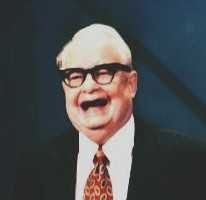
Movie:
States of Grace (2005)
Setting: Santa Monica California; present day
Director Richard Dutcher is considered by many to be the 'father of Mormon cinema', a statues he's not as comfortable with now as he might have been back in 2000, when his breakthrough picture
God's Army first came out. Dutcher has come to reject the label of Mormon filmmaker, as his life's journey has lead him both creatively and spiritually away from such a boxed designation, and because so much of what calls itself Mormon cinema just really isn't that good. Of course even from the beginning Dutcher was a controversial figure in LDS circles, his portals of deeply flawed and spiritually hurting Latter-day Saints, including characters who where missionary's and Bishops, presented a level of ambiguity that many in audiences raised on propagandistic church produced educational films, where decidedly uncomfortable with (so they went to see
Charlie and
The Singles Ward instead).
In
States of Grace (billed in some Mormon markets as
God's Army 2, though that label can only very loosely be applied), we find what is in my opinion, the most spiritually satisfying 'Mormon' movie ever made, and Dutchers best work to date. It is a mediation on the atonement, a story of spiritual pain, growth, and lose, sin as well as forgiveness. It is a movie that demonstrates its directors frustration with Mormon dogmatism, and sense of moral superiority. While not rejecting the structures of the institutional church, in fact arguable accepting them in near completeness, the director pines for the superiority of 'spirit' not 'law' based approach to Godly living. This idea is typified in the film when the Mormon Elders Lozano (Ignacio Serricchio) and Farrell (Lucas Fleischer) take a homeless Pentecostal street preacher into their apartment, after finding him lying drunk and sick behind a dumpster. That action is against the missionary's rules, but it is what Jesus would do. While that event may prompt a low level reassessment of proper spiritual behavior on the part of some LDS viewers, Dutcher is not content to let the audience off with only a procedural sense of ambiguity. Rather later in the film Elder Farrell sneaks out of his apartment at night, to comfort Holly, the troubled young neighbour women the missionary's have befriended (
Rachel Emmers, whose face and light blue eyes are a treasure to gaze upon), which before sunrise leads to sex between the two (don't worry moralists, he pays a high price).
The boundary's between grace and behavior, law and love are what Dutcher is grappling with in this film, and he wants his audience to know that there aren't always easy answers. Fornication born of compassion, of all the right desires. How is an LDS audiance to deal with that? The pain that follows may be necessary and proper, but when Elder Farrell's father won't journey to see his recently hospitalized son (he slit his wrists in shame about having to go home), holding to his early statement that he'd rather see him come home in a coffin then dishonorably, we must ask isn't this level of pain to sever to be warented. I love this film, I think it really gets it, not just about being Mormon, but being Christian, being human. Forgive this film its trespasses, its unmaskabley indie and has its contrivances, watch it, and you'll find something there about how we can all stand to be a better person.
Factoides:
During its original theatrical release, a California movie theater started warning potential customers that
States of Grace was not a "Christian" film. It seems some Evangelical viewers felt they were mislead by the movies title and had not expected it to be a 'Mormon' film. As a result of this, a protest by some Mormons and there sympathisers was held outside of the theater, despite director Dutchers pleas to just let it be.
An Evangelical minister protested that the advertising for Dutchers 2000 film
God's Army was misleadingly targeting Evangelical youth. The reason for this charge stemming from the supposed resemblance of
God' Army star
Matthew A. Brown to born again actor Kirk Cameron, then appearing in a series of
Left Behind films.
 I can't remember how exactly I first became aware of the eccentric British satire program Spitting Image, though I think it might have been on some fluff news piece about the show in the mid- eighty's(I've watched the nightly news since I was about 3). Then in 1991 there was a prime time Spitting Image special on American television in conjunction with the Gulf War, I begged my parents but they wouldn't let me stay up for it. My last encounter with the show until recently was in the middle 90's, when part of a program on TLC about Jonathan Swift (and by extension satire), featured a segment on how they made the unique fleshy/muppet characters featured on the program. Anyway I recently came across some segments from the show on youtube, which I thought I'd share due to their high 80's British weirdness quotient:
I can't remember how exactly I first became aware of the eccentric British satire program Spitting Image, though I think it might have been on some fluff news piece about the show in the mid- eighty's(I've watched the nightly news since I was about 3). Then in 1991 there was a prime time Spitting Image special on American television in conjunction with the Gulf War, I begged my parents but they wouldn't let me stay up for it. My last encounter with the show until recently was in the middle 90's, when part of a program on TLC about Jonathan Swift (and by extension satire), featured a segment on how they made the unique fleshy/muppet characters featured on the program. Anyway I recently came across some segments from the show on youtube, which I thought I'd share due to their high 80's British weirdness quotient: 









 1921-2007
1921-2007






 fery
fery 












